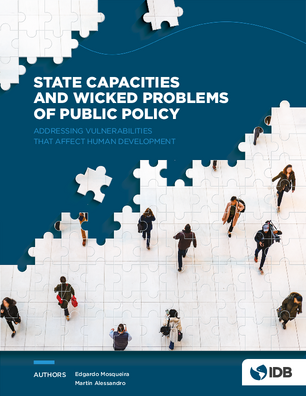State Capacities and Wicked Problems of Public Policy: Addressing Vulnerabilities that Affect Human Development
Date
Aug 2023
There is a growing mismatch between the types of public problems that governments face and the capabilities of the public administrations that design and implement policies to address them. Traditional administrative processes, the division of labor into ministries and agencies with clearly defined mandates, and even results-based management tools (such as logical frameworks or project management methodologies) are useful to address problems with relatively linear and predictable cause-effect relationships, in which success depends on the reliable execution of a predefined plan. In contrast, when dealing with wicked problems, multiple factors and actors are involved, often pushing in opposite directions and generating impacts across different sectors. Therefore, it is difficult to both align incentives and predict the effect of interventions. Such complex systems require a different approach, one that promotes collaboration among diverse actors, experimentation and learning to understand what works, and the ability to make rapid adjustments to interventions. This report illustrates the characteristics of wicked problems in two crucial development areas for Latin American and Caribbean countries: inequality and climate change. For each, it proposes institutional and managerial reforms that would expand the intervention capacities of LAC governments and analyzes the most relevant contexts for each option.




